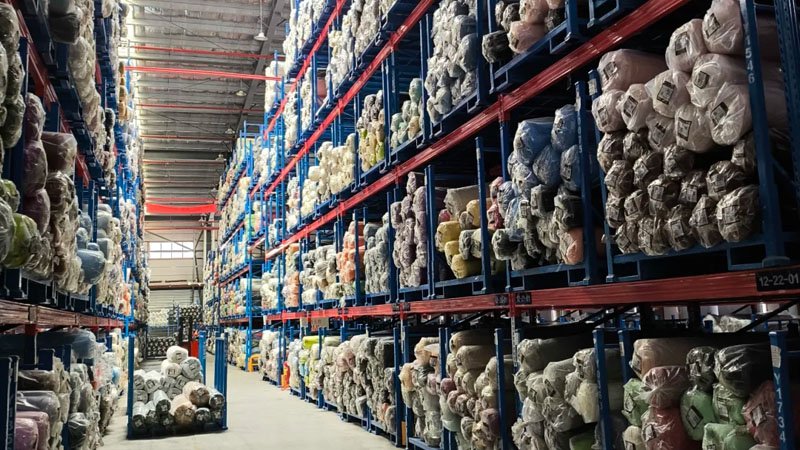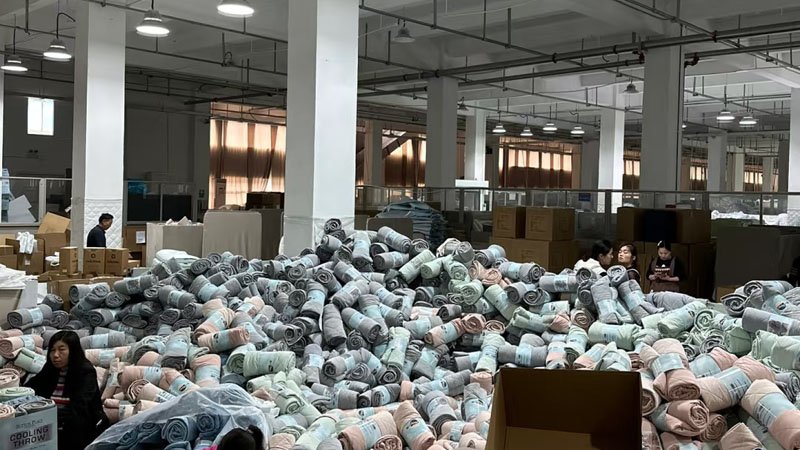
Each beach towel printing technique delivers a unique look, feel, durability, and cost.
The four most common methods are reactive dye printing, pigment printing, digital sublimation, and screen printing. Reactive dyeing blends durability with luxury, pigment printing keeps costs low, sublimation allows vibrant full-color customization, and screen printing shines for bold logos and mass production. The real trick? Picking what fits your brand.
So, which method truly stands out?
Reactive Dye Printing: The Benchmark for Durability and Luxury
If you're aiming for top-tier quality, this is where I’d put my money.
Reactive dye printing creates a chemical bond with cotton fibers, allowing the color to penetrate deep into the towel—not just sit on the surface.
The result? A buttery-soft finish that stays vibrant after countless washes. This method is ideal for premium cotton towels where comfort and longevity matter most.
Why Reactive Dye Printing Feels So Luxe
It’s not just surface-deep
- The color becomes part of the fabric
- The towel stays soft—no plasticky feel
- Excellent wash durability and colorfastness
I once used reactive printing for a summer luxury line, and customers felt the difference immediately. The only downside? It’s slower and pricier than other options—definitely more suitable for high-end collections.
| Pros | Cons |
|---|---|
| Luxurious look and feel | Higher cost |
| Excellent colorfastness | Longer production time |
| Deep, rich color tones | Works best with natural fibers only |
Pigment Printing: The Budget-Friendly Workhorse
Need to save on cost but still want great visual impact? Pigment printing has your back.
This method prints color onto the surface of the towel using binders—no chemical bonding needed.
It’s fast, versatile, and compatible with many fabrics. If you’re printing simple, bold designs and need large volumes quickly, pigment printing is incredibly efficient.

When I Choose Pigment Printing
- Launching promotional items or budget collections
- Running market tests with lower MOQs
- Printing simpler designs without fine gradients
One time, I needed a fast, affordable run for a summer pop-up store—pigment printing made it possible, and they sold out like hotcakes.
Digital Sublimation Printing: Perfect for Customization
This one’s a personal favorite when I want to go bold.
Sublimation printing turns dye into gas, which embeds into polyester fibers. The result is an edge-to-edge design that’s vibrant, detailed, and won’t peel or crack.
Perfect for full-color artwork, travel themes, or trendy limited-edition drops.
My Sublimation Story
I designed a beach towel with a Hawaii-inspired all-over tropical scene. Sublimation brought it to life with crazy detail and color vibrancy. People couldn’t stop snapping pics of it.
| Pros | Cons |
|---|---|
| Full-bleed, vivid designs | Only works on polyester or coated fabrics |
| Won’t fade or crack | Feels different from cotton |
| Amazing detail & customization | Not ideal for luxury cotton lines |
Screen Printing: The Classic Branding Tool
Still going strong after all these years.Screen printing uses stencils to layer ink one color at a time—great for bold logos and high-volume runs.
It’s an excellent choice for brands wanting solid, punchy designs without breaking the bank on setup costs for every towel.

Why I Still Use Screen Printing
- Perfect for logo towels or corporate gifts
- Efficient for bulk orders
- Reliable color payoff, especially on cotton
| Pros | Cons |
|---|---|
| Low cost for large quantities | Not great for gradients or photo detail |
| Durable and vibrant prints | Setup costs for each color |
| Fast turnaround on repeat orders | Can feel stiff if heavily printed |
So, Which Printing Method Truly Stands Out?
Honestly, it depends on your brand’s vibe and goals.
The best printing method is the one that helps you tell your story, beautifully and authentically.
If you're building a luxury line—go reactive or jacquard. For quick-turnaround, high-margin items—pigment or screen print does the trick. Want to stand out with custom, photoreal graphics? Sublimation is your playground. There's no single winner—just the one that brings your vision to life.






